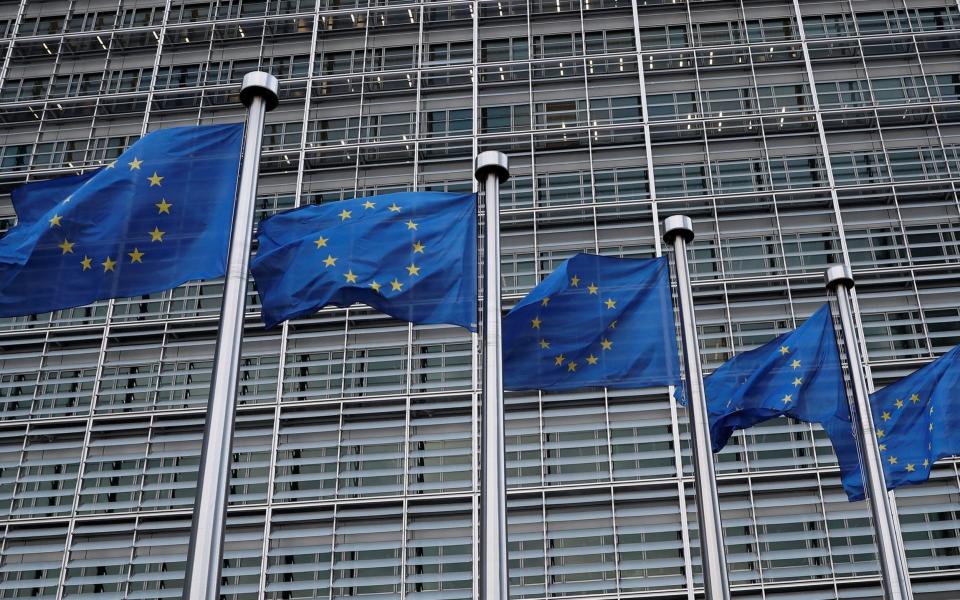EU delays on financial services deal may force Britain to diverge

Brussels’ refusal to grant UK financial services access to the single market will force Britain to diverge from EU rules after Brexit, industry sources have warned.
The European Commission has no immediate plans to grant British firms in 28 sectors market access through a system of regulatory recognition called “equivalence”, Brussels insiders confirmed.
EU officials said Brussels would not grant equivalence to UK firms unless the Government explained how far it planned to diverge from EU rules in the future.
The Government is extremely disappointed at the EU’s failure to reciprocate after it granted equivalence to 28 areas of business such as EU investment firms, exchanges and credit rating agencies in November.
Equivalence is a unilateral decision, which can be withdrawn with as little as 30 days notice in most cases. UK financial services lost their EU “passport” to the Single Market on December 31, when Britain left the Brexit transition period, and the new trade deal does not cover the sector.
The EU has previously used equivalence to encourage adherence to its rules with other non-EU countries but City leaders said the longer the stand-off lasts, the greater the incentive to break from Brussels rules to secure new opportunities in other markets.
Miles Celic, chief executive of TheCityUK group, said: “The reality is that both markets are dynamic and as they evolve the likelihood, and value, of equivalence will shrink.”
Professor Sarah Hall of Nottingham University, said equivalence should be seen as a “perishable good”.
“The longer it takes for an equivalence decision to be taken, the more likely it is that UK based financial service firms will take decisions to operate without equivalence, some of which will be hard to replay, particularly in terms of staff relocations,” she said.
Maria Demertzis of the Brussels-based Bruegel think tank, said there was still “unfinished business” after the trade negotiations but that an agreement would be struck.
She predicted the EU would use the same arguments over the level playing field and fair competition it did during the trade talks: “We cannot of course blame the UK if it seeks other markets and diverge in the process. The question is whether it cares if it loses access to EU markets in the process.”

The UK sent the EU 2,500 pages of answers to 17 questionnaires as part of the bloc’s equivalence assessment process last year.
The commission later demanded “further clarifications” on how the UK would diverge from EU rules, how it will use its supervisory discretion regarding EU firms and how the UK's temporary regimes will affect EU firms.
Industry leaders suspect that the European Commission’s reluctance to grant equivalence is politically motivated and aimed at forcing firms to onshore to the Continent after Brexit.
Sources questioned why equivalence could not be granted and then withdrawn if future divergence proved too much for Brussels to tolerate.
Mr Barnier, who spearheaded the post-financial crisis wave of EU financial regulation said that Brussels had paid attention to equivalence “when possible” earlier this week.
He added, “This is about the stability of the eurozone and the Single Market - we will certainly not risk that again after the 2008 crisis.”
The EU has granted UK derivatives clearing houses and central securities depositories temporary equivalence because it believes that will help safeguard financial stability.
There were ongoing informal UK-EU contacts this week as part of an effort to establish regulatory cooperation on financial services.
While this could help smooth future equivalence decisions, EU officials insisted the push to agree a Memorandum of Understanding by March would not be “equivalence by the back door.”
Divergence is a sensitive issue and how to manage it after Brexit was a major sticking point in the UK-EU trade talks last year.
The UK and EU agreed a “rebalancing mechanism” in the Brexit trade deal that would preserve the UK’s sovereign right to set its own rules but would allow the bloc to retaliate with trade measures if a there is a “material impact” on fair competition.
Tariffs could not be imposed on financial services in this way because they are not part of the trade agreement.
The Government is considering plans to tear up the EU Working Time Directive, and change the rules around the 48-hour week, it emerged on Thursday.
Britain is also mulling whether to reverse a European Court of Justice decision outlawing gene-editing in crops.

 Yahoo Finance
Yahoo Finance 